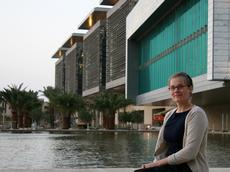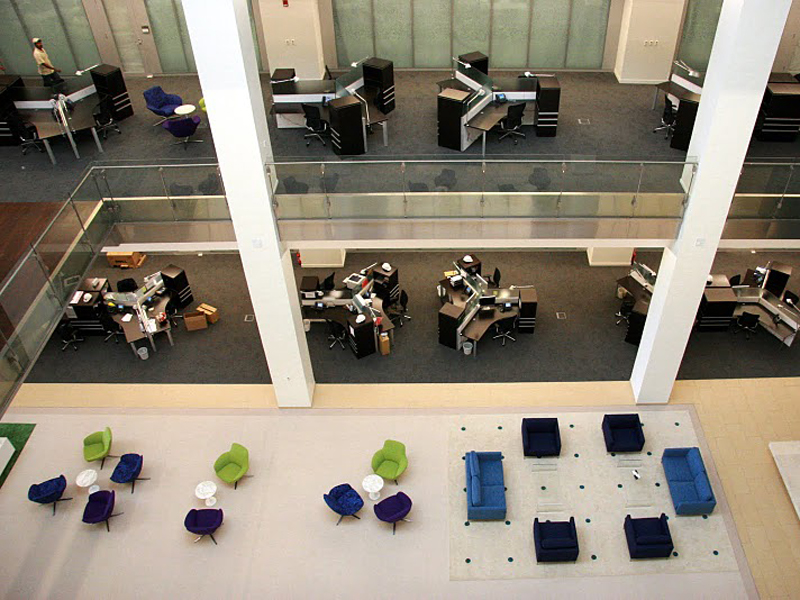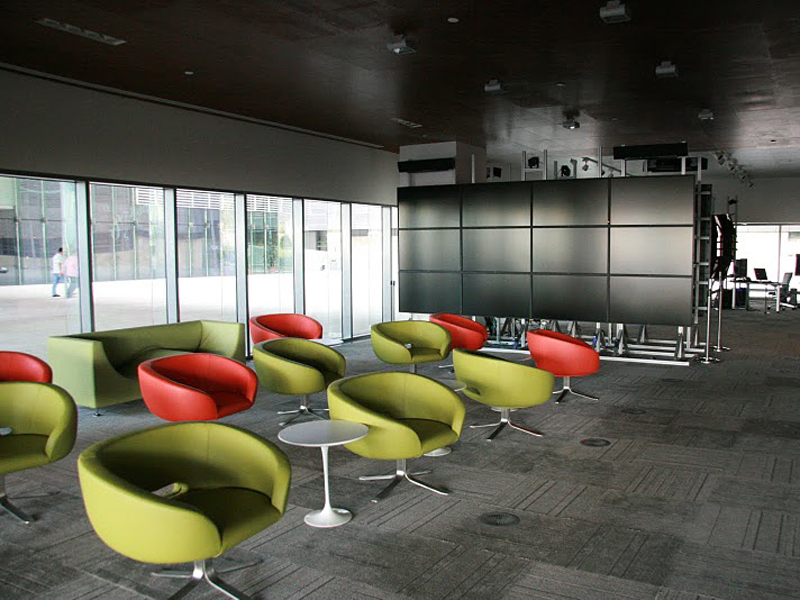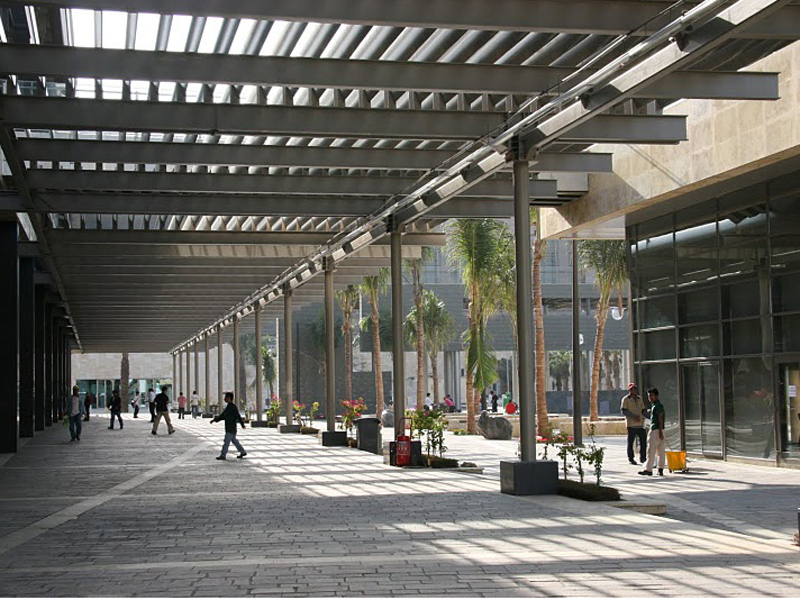KAUST – the new paradise for researchers?
Last summer, almost 400 Master's degree students started their education at King Abdullah University of Science and Technology (KAUST). Today, there are said to be just over 300 students, with 2,000 expected in three to five years’ time. Currently, there are about 80 professors here, and it is hoped that a total of 225 will be recruited. Someday, 15,000 people are expected to be living on campus.

The KAUST university project in Saudi Arabia is an exciting undertaking. How can such a monumental project be carried out successfully from a financial, engineering, social science and, last but not least, university perspective? How do you succeed in planting an independently functioning university campus, with all that goes with it, in the desert within the shortest period of time? How do you attract 15,000 consumers, that is to say, students, researchers and staff, to Saudi Arabia, which is still a developing country in terms of natural sciences? And more importantly: how do you get people to develop emotional, long-term bonds with the place so they don't cancel all their contracts and move on after a trial period of one to two years?
Continuous summer and financial security
The KAUST venture has set ambitious goals for itself. Only the world's best researchers are good enough for this. And anywhere you find good researchers at work is bound to be bustling with good students as well. But how do you attract the hot shots of the research scene to the middle of the Saudi Arabian desert?
Although a continuous summer and weekend dives on the Red Sea's pristine coral reefs may beckon, it is primarily – let's be honest! – the financial aspects that speak in favour of a job change. Each professorship comes with a generous budget that makes good work possible and renders the arduous search for new project funds superfluous.
Thanks to Academic Excellence Alliances with the world's major universities, the KAUST start-up enterprise hopes for a flying start that will allow it to become a major player itself as quickly as possible. In each research discipline, a partner university has been contracted, for good pay, to be available as a consultant, according to the ‘Götti’ principle: for applied mathematics and computer sciences, for example, it is Stanford; for biosciences, it is Cambridge; and Imperial College London has been asked to be the European representative for material sciences. These partners will support KAUST during its five-year start-up phase in developing sound syllabi and recruiting good researchers as well as talented students. One of these partnerships is said to have been cancelled already due to insufficient services provided in return, although unfortunately I have not found anything on this in writing. However, this incident shows the extent of KAUST’s confidence, despite being new to the scene.
And what is everyday life like for a researcher?
Currently, there is still a spanner in the works. The professors are tearing their hair out over the administrative burden placed on their shoulders: issuing visas means lots of additional work. Shipments of textbooks and laboratory supplies such as plain plant soil are arriving several weeks late. Ordering alcohol-containing liquids is an impossibility. Secretaries who have never worked in a university environment either do not send out any seminar announcements, or send them too late.
The applied sciences staff are doomed to idleness because the laboratories are not yet finished: the first intake of students will complete their education without sound laboratory training. Everyone is waiting for software licences that were unknowingly ordered too late, or not at all. As with so many things, the centralised, administrative leadership, which consists largely of staff working for the state oil company Saudi Aramco, bears the ‘blame’ for this. Aramco itself has successfully maintained a large residential and work complex in the east of the country for some time now but is breaking completely new ground in the matter of university requirements.
Instead of sulking, creativeness and adaptability are in demand. Staff and students are sent abroad for research projects or internships, thus establishing new contacts. Laboratory classes are cancelled and additional theoretical lectures are offered instead. And people are pitching in to improve the situation: my tutor has taken up the cause, together with the architect, of customising the unsatisfactory interior of our research building to meet our needs.
High-tech infrastructure at its highest level
Nobody can complain about the technical infrastructure, however. My computer cost more than USD 10,000 and computes like a world champion.
The laboratory instruments make researchers from other universities go green with envy. Two floors below me Shaheen, one of the fastest super computers, reigns over a realm of highly complicated computing processes. And any day now we will be connected directly to the thick glass fibre cable which connects Europe digitally with South Asia and which runs between the coral reefs through the Red Sea.
Campus life is easy to endure in other respects as well. Since Sharia loses its validity at the front door, people lead a liberal, Western lifestyle here – apart from the muezzin's calls to prayer, the women-only sports classes, and the absence of alcohol and cinemas. Although the sports facilities do not (yet) compare with those of the Zurich Academic Sports Association (ASVZ), the golf course, which is hardly ever used, is open to anyone free of charge, and the diving trip to the coral reefs, including boat rental, two dives, equipment and lunch, costs a mere CHF 60.
Food is impeccable as well: the selection covers all cultural needs. The canteen menu offers strawberry-banana shakes as well as fresh fish. The waiting queues which are oh so familiar at the ETH Zurich canteen are absent here, and for a few riyals more you can have your wok, pasta or grilled meal prepared right before your eyes.
Everything seems great, then. Yet the campus still appears lifeless and obsolete. It lacks character, personality, history. Everything still seems anonymous and lacklustre. Or, as Chris von Rohr would say: KAUST needs "meh Dräck" ("more dirt"). This clinically clean ‘everything-here-is-perfect-and-we-don't-care-about-the-world-outside-mood’ leaves a stale aftertaste. However, so far only a third of all university places have been taken up, and KAUST will continue to grow ‘organically’ in the coming years. And each new arrival on campus will play his or her part in livening things up.
About the author
Sabrina Metzger studied interdisciplinary sciences at
ETH Zurich. After working on a project at the Swiss Seismological Service for a
year, which involved analyzing the micro-earthquake near the Gotthard Basis
Tunnel still under construction, she then moved to Spectraseis Technologie AG,
a spin-off of Zurich University. In the spring of 2008, she returned to ETH
Zurich to embark on a PhD at the Institute for Geophysics.
Metzger
is currently in Saudi Arabia, however, working as a guest researcher at the
recently founded King Abdullah University of Science and Technology (KAUST).
This is because her supervisor, the Icelandic geophysicist Sigurjón Jónsson,
moved to KAUST from ETH Zurich to take up a position as an associate professor.










READER COMMENTS